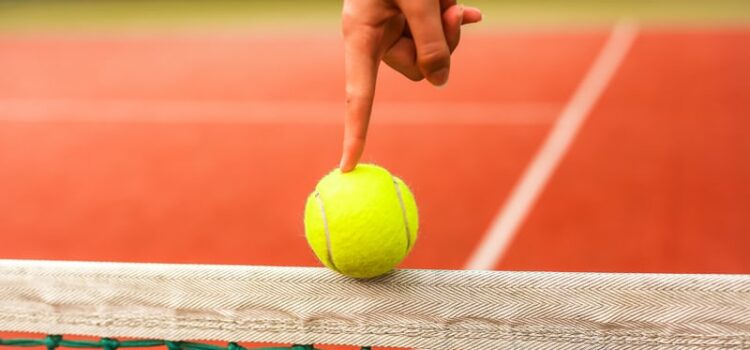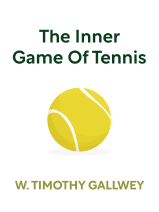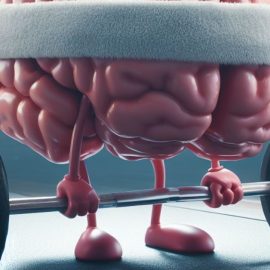

This article is an excerpt from the Shortform book guide to "The Inner Game of Tennis" by W. Timothy Gallwey. Shortform has the world's best summaries and analyses of books you should be reading.
Like this article? Sign up for a free trial here .
What is tennis focus? How do you learn to focus and how can it help you play better?
Tennis focus is referred to as “relaxed focus.” This means that you have your head in the game, but don’t stress yourself out with self-criticism and overthinking.
Read more about tennis focus and how it can improve your game.
Tennis Focus: Visualizing Success
Letting Self 2 take control is a simple concept, but it’s not easy, and it requires focus. Even when we can quiet our minds, we can still have trouble focusing on something specific.
- You can’t control the mind through a passive process—you have to learn to direct it somewhere.
- This doesn’t mean that the mind can’t be quiet—true focus includes having the quiet mind described earlier to find relaxed concentration.
Consider the process of watching the ball. Often, people think watching the ball includes watching the ball, thinking about the next shot, or worrying about what anyone watching will think if they flub it.
Instead, just focus on the seams of the ball as it travels. Focusing on this one specific motion will both actually help the player see the ball better and quiet the mind from thinking about anything else. Become absorbed in the pattern, and the body will do everything else naturally.
Don’t think that you know everything about the ball—stay engrossed and continue to look for oddities no matter how many tennis balls you’ve seen in your life. You don’t know how it’s going to bounce, nor do you know its trajectory or speed every time. Track those things.
If you have access to a tennis court, try this exercise:
Say the word “bounce” out loud every time the ball hits the court and the word “hit” every time it hits your racket or your opponent’s. This will keep you focused on the ball and the rhythm of the game. Self 1 is kept busy tracking the bounces and hits while Self 2 can perform the work of positioning and returning the ball.
Focus and Interest
Focus will occur not when you’re trying too hard to focus on something, but when you’re legitimately interested in something. Here’s how tennis focus works.
Any exercise that suggests you can play “in the zone” every time with one simple trick is worthless because it is suggesting that you can think your way, with Self 1, into the zone. You can’t court Self 2 with Self 1, you need to do your best to quiet Self 1 and then Self 2 will come to the forefront. This involves trust.
If you are straining or squinting in any way, you are not really focused because you are trying too hard. Become truly interested in the patterns of the ball, and this focus will come.
Listening and Watching the Ball
One tennis focus tactic is listening to the ball.
- When the ball is closer to the sweet spot, it will make a better sound. Remember that sound and remember when you are able to reproduce it and the body will work towards making this happen more. This is particularly useful with serves because of the sustained and repeated motion of the serve.
While you’re watching the ball, you also need to know where your racket is at all times. This introduces the concept of feeling, one of the most important in tennis. The slightest change in positioning or angle can produce very different results.
- Spend a lot of time in practice feeling the exact path of your swing. This may produce undesirable immediate results, but taking the time to understand exactly how the motion of your swing affects the trajectory of the ball is essential. Remember nonjudgmental observation!
- Also be aware of what muscles you’re using when. Know what it feels like to move into position and hit a stroke. Then that will be much easier for Self 2 to recreate as your mind continues to focus on the ball.
Here and Now
We are focusing our awareness on the here and the now using tennis focus:
- The here is the ball, the wind, our own muscles or stroke.
- The now is turning our attention directly to the present. Not thinking about past points or points to come, not thinking about defeat or victory. The now is so important because it’s very easy to spiral out of control and lose our place on the court.
Being alert is basically measuring how much you can be in the “now” every second. If you’re thinking about external things, that means that less of you is able to focus on what’s happening in front of you. It’s our wish for things to be different than they are right now that pulls us from the present. Tennis becomes only part of the game that you’re playing on the court; you’re also thinking about your opponent and your friends and other matches if you’re in a tournament.
In a match, usually the competition will keep you focused during each point, so the important moment is between the points. Think about the natural rhythm of your own breathing to maintain concentration in this case.
These experiments that improve your tennis game can also improve your life—we can use our senses to focus our attention more directly on whatever we want. It becomes much easier to tune out any other background noise in our consciousness.

———End of Preview———
Like what you just read? Read the rest of the world's best book summary and analysis of W. Timothy Gallwey's "The Inner Game of Tennis" at Shortform .
Here's what you'll find in our full The Inner Game of Tennis summary :
- Why tennis is actually a mind game
- How to quiet the mind and concentrate intently
- Why your self-worth shouldn't be dependent on how you do in competition






